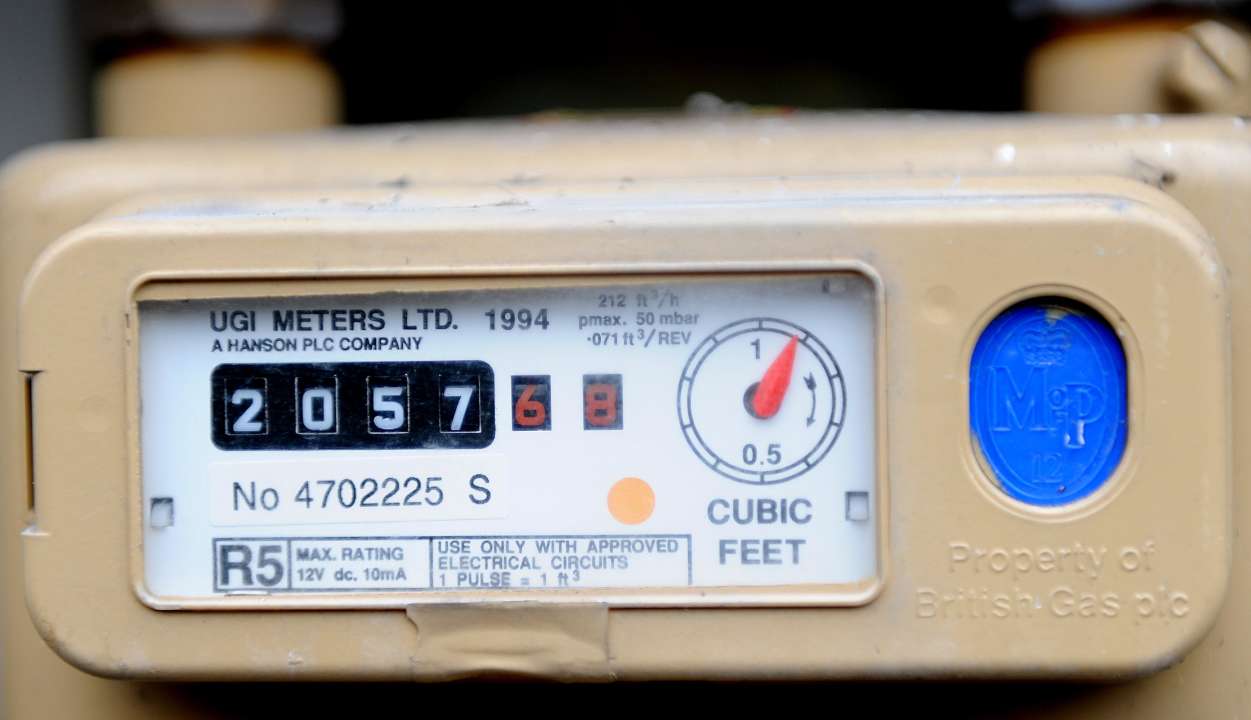Some 10 million households should send energy meter readings to their supplier this weekend to ensure they do not overpay when cheaper prices come into effect on April 1.
The average household energy bill is to fall to its lowest point in two years from next month after Ofgem lowered its price cap in response to wholesale prices.
The regulator is dropping its price cap by 12.3% from the current £1,928 for a typical dual fuel household in England, Scotland and Wales to £1,690, a drop of £238 over the course of a year or around £20 a month.
The average household on a standard variable tariff (SVT) is expected to spend £127 on energy in April, compared with £205 in March, due to a combination of cheaper rates and lower usage as the weather warms up.
Those on SVTs who do not have a smart meter and do not submit meter readings on or around April 1 risk having some of their usage after that date charged at the previous, more expensive rates.
The difference between a week’s worth of energy at the old rates compared with a week in April was £4.65 for the average household, Uswitch warned.
Nearly a fifth of households who do not have a smart meter (18%) have not submitted their meter readings in the last three months, and 4% have not done so for a whole year, a survey for the comparison site found.
Suppliers who have not received meter readings base their bills on estimated usage, meaning households could be overpaying, while others may not be paying enough.
A quarter of those who have not submitted their readings in the last three months (24%) said they forgot to, while 17% said it was “too much hassle”, Uswitch said.
Some 14% of those who had not submitted readings did not know how to read their meter, and 12% said they did not even know where their meter was.
Meanwhile, 22% of households said they had made a mistake when submitting their meter readings, with mixing up gas and electricity meters and writing digits in the wrong order the most common errors.
Ben Gallizzi, energy spokesman at Uswitch.com, said: “We urge any households without a smart meter to submit their meter readings this bank holiday weekend, so their supplier has an updated and accurate view of your account on or around April 1.
“This is when the next energy price cap comes into effect, which will see the rates that households on standard variable tariffs pay for their energy fall for April, May and June.
“If you delay submitting your readings, some of your energy usage could end up being charged under the higher rates we’re currently facing.
“All households without a smart meter should ideally submit a meter reading every month to improve the accuracy of their bills.”
Opinium surveyed 2,000 UK adults online between March 1-5.
Follow STV News on WhatsApp
Scan the QR code on your mobile device for all the latest news from around the country




























